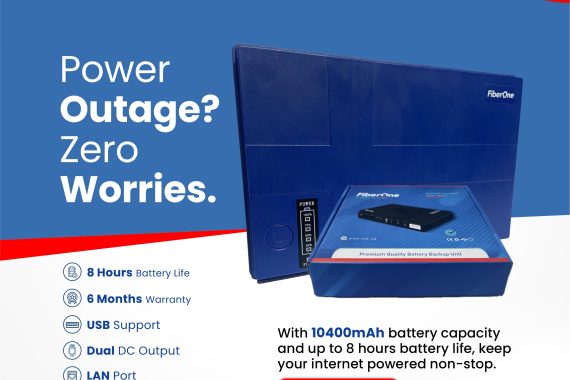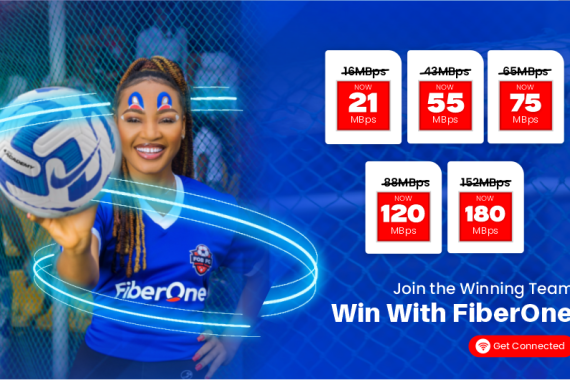FibreOne Broadband, Nigeria’s broadband and fiber-to-the-home provider, reports a nearly 300 percent increase in customer base.
Residential customers increased by 77%, while small and medium-sized businesses (SMEs) increased by 23% during the same time period.
FiberOne Broadband, which was founded in 2017, connects people in their homes and businesses, allowing them to enjoy a whole new way of connecting to and streaming music, movies, online meetings, and gaming.
Lanre Adebayo, a tech entrepreneur who recently subscribed to FibreOne, said he can work without interruptions and that the service is so fast that he can upload more videos in less time than he was used to.

FibreOne Broadband offers customers download speeds of up to 1200 megabytes per second. According to Ookla, the global average download speed on fixed broadband in September 2021 was 113.25 Mbps and 63.15 Mbps on mobile.

“Technology is invading every space and, without a doubt, influencing our daily lives.” “More people are opting for devices at home to work efficiently and relieve the stress of chores,” said Kenny Joda, FibreOne’s Head of Corporate Services. “Our customer base is expanding, and we have 77 percent of residential subscribers.” FibreOne Broadband’s service delivery is customer-centric, and we will continue to introduce solutions that keep our customers productive at home or at work.”

Many people consider fiber optic internet to be prohibitively expensive, which has resulted in usage not growing at the same rate as mobile broadband. Fiber deployment across the country is hampered by various obstacles such as Right of Way, multiple taxes, and so on.
To be clear, fiber optic internet is a type of internet connection that uses fiber optic cables to transfer data. Data is converted into light signals that travel through thin glass wires within the larger protective cable within fiber optic cables. The fact that data is transferred in this manner (via light signals) is what makes fiber-optic internet so fast.
Aside from being fast, fiber optic internet is extremely dependable, particularly for video streaming. Fiber optics can also handle more users and data at consistently faster speeds, and because it does not require energized lines, it is less prone to outages.




